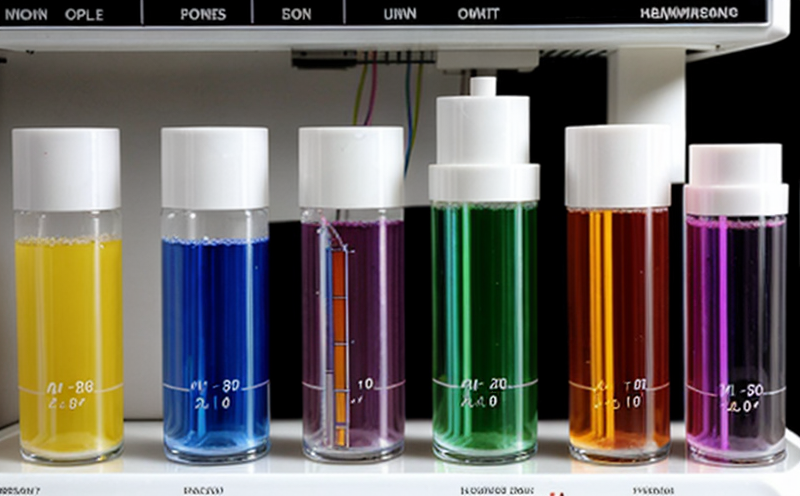BS EN ISO 22892 Chromatographic Analysis of Soil Quality
The European Standard BS EN ISO 22892 provides a robust framework for chromatographic analysis aimed at assessing the quality and potential contamination levels in soil samples. This standard is particularly relevant for environmental monitoring, construction projects, land remediation efforts, and other applications where the integrity and safety of soil are critical.
The chromatographic technique used under this standard typically involves gas or liquid chromatography (GC/LC), depending on the nature of contaminants being analyzed. The goal is to identify organic compounds that may pose risks to human health and the environment. This method allows for a detailed breakdown of various substances present in soil, facilitating precise characterization.
The process begins with thorough sample preparation, which involves collecting representative samples from the intended area or point of interest. These samples are then homogenized and prepared according to the standard's requirements. The chosen chromatographic technique is used to separate the components of the soil extract, followed by detection using appropriate detectors like flame ionization detector (FID) for GC or UV-Vis spectrophotometry for LC.
The analysis focuses on detecting a range of organic compounds, including but not limited to polycyclic aromatic hydrocarbons (PAHs), volatile organic compounds (VOCs), and pesticides. The standard outlines specific thresholds that define acceptable levels of contaminants in soil, which are based on environmental protection guidelines and health-based risk assessments.
Once the analysis is complete, the results are reported comprehensively, including detailed chromatograms showing peaks corresponding to identified compounds, their retention times, and concentrations. This information is crucial for decision-making processes related to land use, remediation strategies, or compliance with regulatory requirements.
The importance of this standard cannot be overstated in ensuring that soil quality meets the necessary standards for safety and environmental protection. By adhering to BS EN ISO 22892, laboratories can provide reliable data that informs critical decisions impacting public health and ecosystem sustainability.
Quality managers, compliance officers, R&D engineers, and procurement teams benefit significantly from this service as it ensures consistent adherence to international standards, supports regulatory compliance, and enhances the credibility of environmental assessments. The use of advanced chromatographic techniques not only improves accuracy but also allows for early detection of potential risks, enabling proactive measures to be taken.
In conclusion, BS EN ISO 22892 Chromatographic Analysis of Soil Quality is a cornerstone in the field of environmental testing and quality assurance. Its rigorous methodology ensures that soil samples are analyzed thoroughly, providing reliable data essential for informed decision-making processes.
Applied Standards
The BS EN ISO 22892 standard specifies the procedures for chromatographic analysis to determine the presence of organic compounds in soil. This includes detailed instructions on sample preparation, instrumental techniques, and data interpretation. The standard is applicable across various sectors including construction, agriculture, and environmental protection.
For chromatography, both gas chromatography (GC) and liquid chromatography (LC) are commonly used depending on the type of contaminants being analyzed. GC is often preferred for volatile compounds, while LC excels in separating non-volatile substances. The detectors employed include flame ionization detector (FID) for GC and UV-Vis spectrophotometry for LC.
The standard also outlines acceptance criteria based on which results are evaluated. These criteria ensure that the detected levels of contaminants do not exceed permissible limits set by environmental protection agencies. Compliance with these standards is crucial for ensuring that soil quality meets regulatory requirements, thereby protecting human health and the environment.
Eurolab Advantages
At Eurolab, we pride ourselves on delivering comprehensive and reliable chromatographic analysis services for soil quality assessment. Our team of experts is well-versed in BS EN ISO 22892 standards, ensuring that every analysis conducted meets the highest international benchmarks.
We offer a range of services tailored to meet your specific needs, whether you require routine testing or one-off assessments. Our state-of-the-art facilities are equipped with advanced chromatographic instruments capable of detecting even trace levels of contaminants. This precision ensures accurate and reliable results.
Our commitment to quality is reflected in our ISO/IEC 17025 accreditation, which guarantees that all our processes adhere to the strictest industry standards. We also provide detailed reports accompanied by comprehensive chromatograms, providing you with a clear understanding of the soil composition and any potential risks identified.
Additionally, Eurolab offers unparalleled customer support throughout the entire testing process. From initial consultation to final report delivery, we ensure that every step is handled efficiently and effectively. Our experienced staff can provide expert advice on sample collection methods, interpretation of results, and compliance strategies.
By choosing Eurolab for your soil quality assessment needs, you gain access to a network of industry leaders who are dedicated to delivering superior service. With our expertise, state-of-the-art equipment, and unwavering commitment to quality, we are confident that you will be satisfied with the results of any analysis conducted under BS EN ISO 22892 standards.
Use Cases and Application Examples
The application of BS EN ISO 22892 Chromatographic Analysis extends across numerous industries, including construction, agriculture, environmental protection, and remediation projects. Here are some key use cases:
- Construction Projects: Ensuring that soil used for foundation work or landscaping does not contain harmful contaminants can prevent costly reworks and health hazards.
- Agriculture: Detecting pesticide residues in soil helps farmers make informed decisions about crop selection and application methods, ensuring food safety.
- Environmental Protection: Monitoring soil quality around industrial sites or landfills aids in assessing potential environmental impacts and implementing mitigation measures.
- R&D Projects: Investigating new soil treatment technologies requires accurate data on soil composition to optimize processes and outcomes.
These examples illustrate how the BS EN ISO 22892 standard plays a vital role in various sectors, ensuring that decisions are based on reliable scientific evidence. Whether it's for regulatory compliance or research purposes, this standardized approach ensures consistency and accuracy in soil quality assessment.





